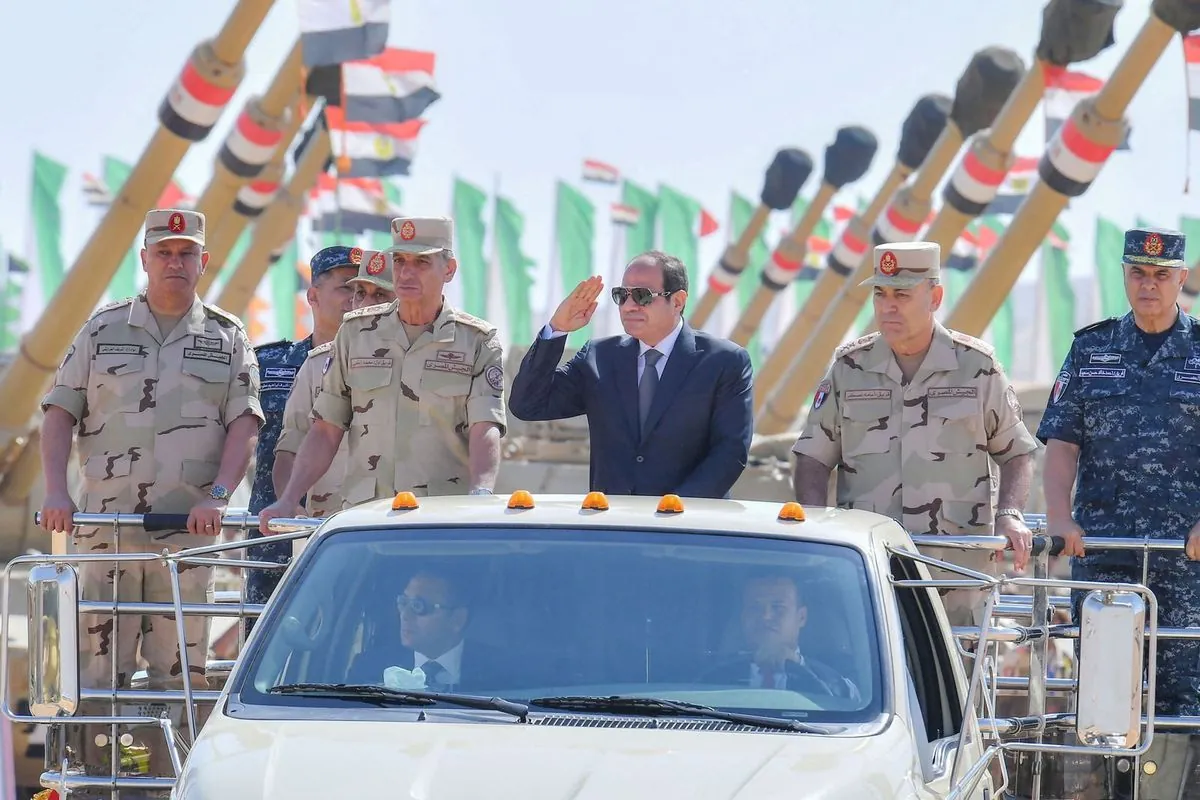In a significant development, Lieutenant General Ahmed Fathy Khalifa, Egypt's army chief of staff, conducted an unannounced inspection of the security situation along the country's border with the Gaza Strip. This visit, reported by state television on September 7, 2024, comes at a crucial time in the ongoing efforts to resolve the conflict in the region.
The Gaza Strip, a Palestinian territory spanning approximately 41 kilometers in length and 6-12 kilometers in width, shares a 12-kilometer border with Egypt. This area, particularly the Philadelphi corridor, has become a focal point in discussions surrounding a potential permanent ceasefire.
Two days prior to the Egyptian military chief's visit, Benjamin Netanyahu, the Israeli Prime Minister, outlined specific conditions for agreeing to a lasting cessation of hostilities. Netanyahu emphasized the necessity of ensuring that the southern Gaza-Egypt border area could not be utilized as a support channel for Hamas, the Islamist movement currently controlling the Gaza Strip.
The Philadelphi corridor, a narrow strip of land along the Gaza-Egypt border, has emerged as a significant obstacle in negotiations. These talks aim not only to halt the ongoing conflict but also to facilitate the exchange of Israeli hostages for Palestinian prisoners.
"A permanent ceasefire in Gaza will only be agreed upon if it guarantees that the border area between southern Gaza and Egypt can never be used as a lifeline for Hamas."
The Gaza Strip, home to approximately 2 million people, has been under an Israeli-Egyptian blockade since Hamas took control in 2007. This densely populated area faces numerous challenges, including limited access to essential resources such as electricity and clean water. The United Nations Relief and Works Agency (UNRWA) plays a crucial role in providing vital services to many Gaza residents.
The region's economic situation remains precarious, with high unemployment rates and a heavy reliance on agriculture, fishing, and small-scale manufacturing. The Rafah Border Crossing, the primary point of transit between Gaza and Egypt, holds significant importance for the movement of people and goods.
As negotiations continue, the international community watches closely, hoping for a resolution that addresses the complex issues surrounding the Gaza Strip, including its governance, security, and the well-being of its inhabitants. The outcome of these talks could have far-reaching implications for regional stability and the lives of millions in the area.
